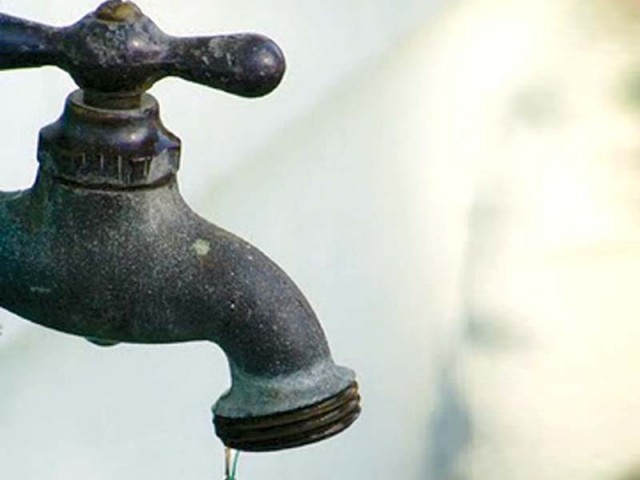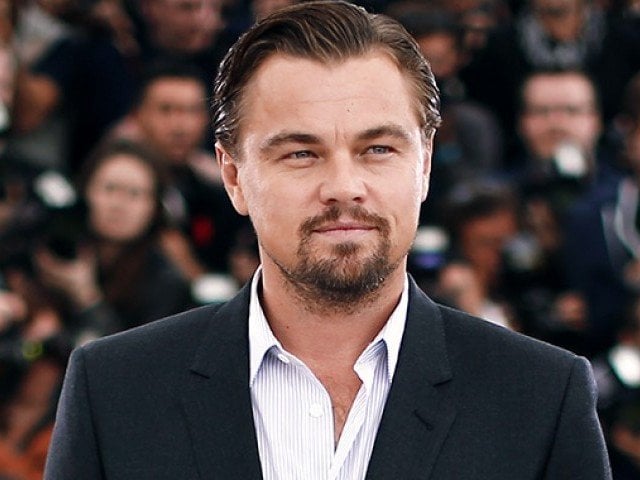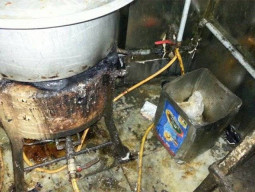
If you are living in Karachi, you should think twice before you take a sip of your tap water.
The water, which is being supplied to nearly all water tanks in the city from Keenjhar Lake, is highly contaminated with a mixture of industrial and domestic waste, The Express Tribune has learnt.
Untreated domestic sewage from the households in Kotri and Jamshoro, and effluents from nearly 100 industries set up in the area flows directly to the Kalri-Baghar (KB) Feeder canal, which is the main source of water for Keenjhar Lake. The treatment plant at SITE, which was set up by the industries located in the area, started operations last week. However, the plant’s biological and chemical tanks developed leaks on the first day and have yet to be fixed.
This means that the water flowing into Karachi is untreated but the Karachi Water and Sewerage Board (KWSB) insisted that water is drinkable. “The water is still potable and meets the standard of the World Health Organisation,” said KWSB managing director Quttabuddin Shaikh, who visited the site last week.
At the time, Shaikh was unsatisfied with the quality of water and wrote a letter to Kotri SITE and the Sindh irrigation officials to take appropriate measures as soon as possible. “I have an objection on untreated waste material flowing into KB Feeder,” he admitted to saying. “It is a matter of health for the 20 million people living in Karachi.” Shaikh dismissed the issue, however, by saying that it is the responsibility of the irrigation officials to close the doors of KB Feeder to toxic waste.
Treatment plant closed
The 2.5MGD combined-effluent treatment plant in Kotri SITE was expected to start last week but its three treatment tanks leaked on its first functional day - September 11. The inauguration of the treatment plant, which was built in April 2010 on the orders of the Sindh High Court, was supposed to take place in December last year.
According to sub-engineer Zafar Iqbal Arain, the plant has 14 small and big biological and chemical treatment tanks in addition to six ponds to collect industrial waste. “We are trying to make it functional as soon as possible,” said the sub-engineer, who was available at the treatment site. “It happens when such big plants are started,” he tried to justify.
Another official, who refused to share his name, told The Express Tribune that substandard material was used in the construction of the plant that cost nearly Rs670 million. “The water flowing into the city contains poisonous particles,” he pointed out. “The people of Karachi don’t even know what sort of water they are using every day.” According to him, the residents of Kotri are only using the water mixed with domestic waste, but the water flowing into Karachi takes with it a lot of industrial waste also.
Meanwhile, KWSB insisted their responsibility only lies with water distribution. “Our task is to point out issues related to water being supplied within Karachi,” said Shaikh, adding that the KWSB is trying to provide purified and tested water. For him, the problem could be solved in two ways: first, the industries build their own treatment plants or the present plant should be made functional as soon as possible. “The second recommendation is to ensure the links of waste water to KB Feeder are disconnected.”
For Pakistan Relief Foundation Haleem Adil Sheikh, the issue needs to be taken to the court. “The KWSB officials admit that 20 million people of Karachi are at risk,” he said. “If they point out an issue, they need to address it as well.” Sheikh is planning to file a petition against all the relevant officials.
Published in The Express Tribune, September 16th, 2013.

1729161093-0/liam-(4)1729161093-0-165x106.webp)


1732603002-0/lamar-(4)1732603002-0-165x106.webp)












COMMENTS
Comments are moderated and generally will be posted if they are on-topic and not abusive.
For more information, please see our Comments FAQ